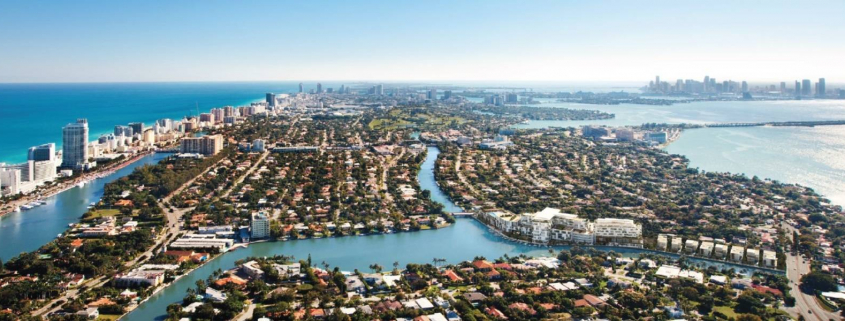
Beth Azor, principal, Azor Advisory Services; Aly-khan Merali, CFO and chief investment officer, Turnberry Associates; Jack Lowell, executive VP, Colliers International South Florida; Avra Jain, principal, Vagabond Group; and Chris Weilminster, executive VP, Federal Realty at the Greater Miami Chamber of Commerce real estate summit
The experts gathered for the Greater Miami Chamber of Commerce’s South Florida Real Estate Summit stressed that the market is not headed for a downturn, even though growth has slowed.
About 450 people gathered at Miami’s Jungle Island on Thursday for the event, which featured two panels and various speakers. Miami Commissioner Francis Suarez told attendees that 2015 saw the highest volume ever for the city’s building department, with 174 permits issued and $2.4 billion in ongoing construction. “That is why you are waiting so long in the building department,” he said.
Here are five highlights from the panels:
Retail Carries Great Potential, At A Moderate Pace
South Florida has about 6 million square feet of retail proposed or under construction, with a handful of new malls planned and four malls set to expand, said Beth Azor, principal of Azor Advisory Services.
“That is a little crazy,” Beth Azor said. “I am not sure how much will be built. SoLe Mia and American Dream Miami will probably happen, but four or five other projects we hope are not built because limited supply keeps our market healthier.”
Azor is looking to sign tenants at a new retail center at Northwest 79th Street and Northwest 32nd Avenue.
“Retail leasing is going well at SoLe Mia in North Miami, and rents there are better than on nearby Biscayne Boulevard,” said Aly-khan Merali, CFO and chief investment officer of Turnberry Associates, the co-developer of the project. “It’s focused on signing tenants that will be relevant in three or five years,” he said.


